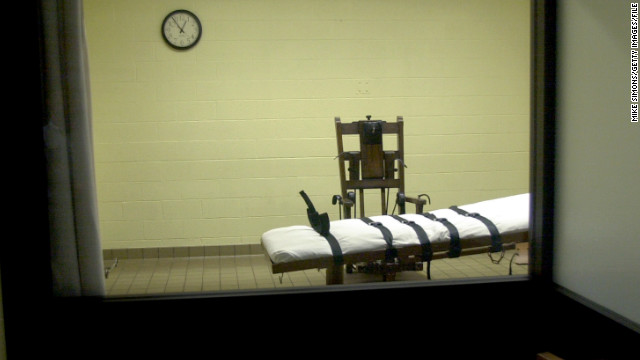
Last week, the federal government executed two men within nearly 24 hours.
What's striking here is the timing. The deaths of Alfred Bourgeois and Brandon Bernard mark the first time the death penalty has been imposed during the lame-duck period since 1889, when Grover Cleveland was President -- before the bottle cap or the diesel engine were even invented. The executions come more than a year after Attorney General William Barr directed the federal government to reinstate the death penalty for the first time in nearly 20 years.
The fact that an attorney general can decide to commence the federal death penalty after years without it, or that the United States has a century-plus-old practice of suspending it at certain points in the political calendar tells us everything that is wrong with the practice. The death penalty is unique in the law -- despite its finality, it is politically fraught, inconsistently applied, subject to the basest human impulses, and a relic of the ugliest elements baked into our criminal justice system.
No process that is so dependent on both human biases and emotions ought to play such an outsized role in how we administer justice. For instance, once prosecutors choose to charge capital offenses, jurors make the decision as to whether to sentence someone to death. At sentencing, jurors are notoriously subject to being swayed by their own biases and uncertainty.
For instance, lawyers for Bernard, who was executed Thursday night, argued on appeal that trial prosecutors had withheld evidence that diminished his role in the crime. Regardless of the fact that courts found the issue insufficient to toss the sentence, five of the jurors who sentenced Bernard to die came forward saying they would not have agreed to a death sentence had they been aware of the undisclosed information.
Put another way, the law never requires a death sentence. Jurors must choose to impose it based on information that is subjectively, and often passionately, presented to them. That is an unreasonable amount of power, particularly given decades of analysis around how race commonly infects the jury selection process. It is but one of many factors leading to the gross historical inequities around race and the death penalty that have haunted this country, or the ongoing legal questions surrounding the manner in which it is carried out.
There is an easy solution to all of this. End the federal death penalty. The Trump administration has the power to do it today. I don't buy for a moment Barr's argument that "the way to stop the death penalty is (for Congress) to repeal the death penalty. But if you ask juries to impose it, then it should be carried out." That is a common, lazy point made by prosecutors (of the sort I have made or considered myself when I was a prosecutor at the Justice Department), hiding behind Congress when there are easy steps the executive branch can take.
Since presidents from both parties have failed to act, this is President-elect Joe Biden's moment -- particularly given his stated opposition to the death penalty as a candidate. Once he is sworn in on January 20, the administration can put a moratorium on new decisions to seek death sentences. It can withdraw all pending decisions to seek the death penalty in ongoing cases. It can commute all current death penalty sentences to life in prison. (This last step is important; stopping short of commuting sentences merely kicks the can to future presidents.) Notably, Barr didn't include in his statement that each of the above steps are all within the discretion of the executive branch.
And finally, the Biden administration should advocate that Congress change federal laws to remove the death penalty from federal criminal statutes.
Having spent a decade in law enforcement, I am well aware that many reasonable people think a death penalty is critical to keeping the public safe or to deterring future crimes, or that some vicious crimes ought to be punished to the fullest extent possible. I dealt with the impact of violent crimes up close. I have seen autopsy and crime scene photos that still haunt me to this day. I have sat in the room with those who have lost their loved ones to truly heinous acts.
I understand those arguments in favor of the death penalty. They are still wrong. Fixating on the fact that justice can be found only through the death penalty abuses the notion of what justice is. It confuses justice with vengeance -- an incredibly easy human failure when emotions are involved.
We shouldn't be the society of state-sponsored lynching, stocks, and the rack and thumbscrew we were hundreds of years ago. It is time our leaders stopped clinging to the past as if we are.
"time" - Google News
December 14, 2020 at 10:03AM
https://ift.tt/3nfUVmx
The death penalty confuses vengeance with justice, and it's time to end it - CNN
"time" - Google News
https://ift.tt/3f5iuuC
Shoes Man Tutorial
Pos News Update
Meme Update
Korean Entertainment News
Japan News Update
Bagikan Berita Ini














0 Response to "The death penalty confuses vengeance with justice, and it's time to end it - CNN"
Post a Comment